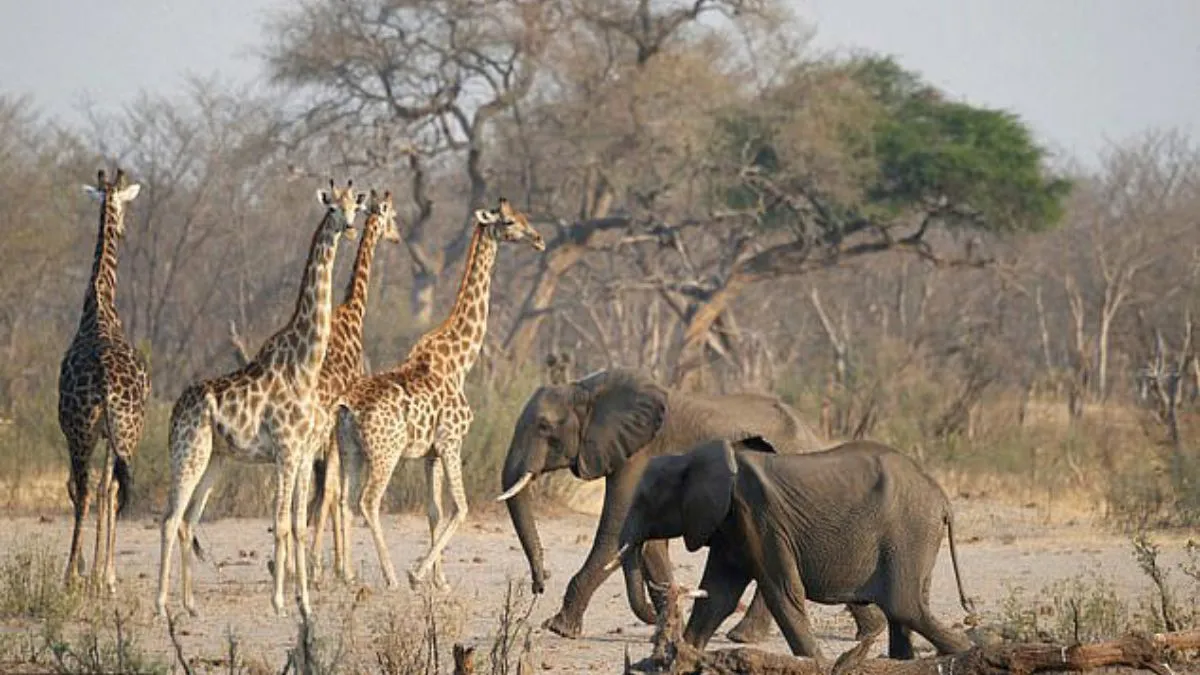- By Kamal Kumar
- Sat, 31 Aug 2024 01:21 PM (IST)
- Source:JND
Namibia, a Southwest African nation, has planned to kill over 700 wild animals, including elephants, zebras and hippos, to distribute their meat to its drought-affected citizens residing in arid areas. Notably, the country is witnessing the worst drought in a century, CNN reported. The country's 84 per cent food reserves have already been exhausted, prompting such a drastic measure by the government to feed the people.
In total, 83 elephants, 30 hippos, 60 buffaloes, 50 impalas, 100 blue wildebeest and 300 zebras will be culled after the Ministry of Environment, Forestry and Tourism approved the government plan.
The authorities are planning to gather the animals from some of the community forests and national parks, which have enough quantities of them. In a Ministry press release, the government said that animals will be hunted in the Namib Naukluft Park, Mangetti National Park, Bwabwata National Park, Mudumu National Park and Nkasa Rupara National Park. They will be killed by professional hunters, the release added.
'Part Of Conservation Effort'
The Namibian ministry further said that as all industries take a hit from the drought, including wildlife conservation, the step will help mitigate the negative impact of drought on the conservation effort.
The step will reduce the number of wild animals, thereby decreasing the pressure on the grasslands and scarce water resources.
"An arrangement has been made with the office of the Prime Minister and Meatco for the Ministry to provide game meat for the drought relief programme," the ministry said.
The Namibian government further said that the decision is in sync with the constitutional provisions which seek to uphold the welfare of the citizens.
"We are happy that we can assist the country in this very difficult time and when it is absolutely needed. Not only do Namibians benefit, through the meat provided for drought relief, but the ministry has over the years supplied meat for national, regional, and traditional events in line with our policies and laws," the ministry added in the release.
